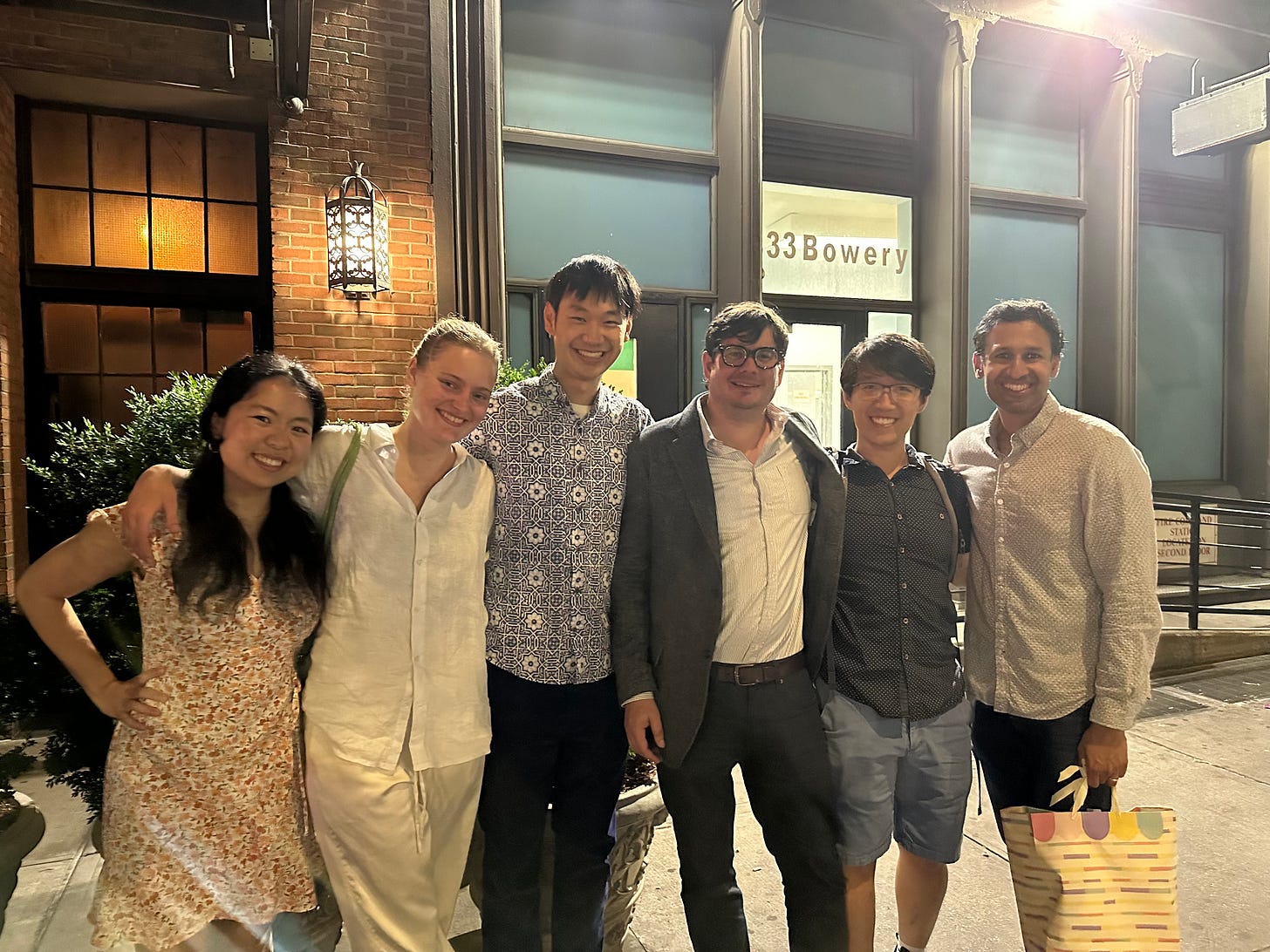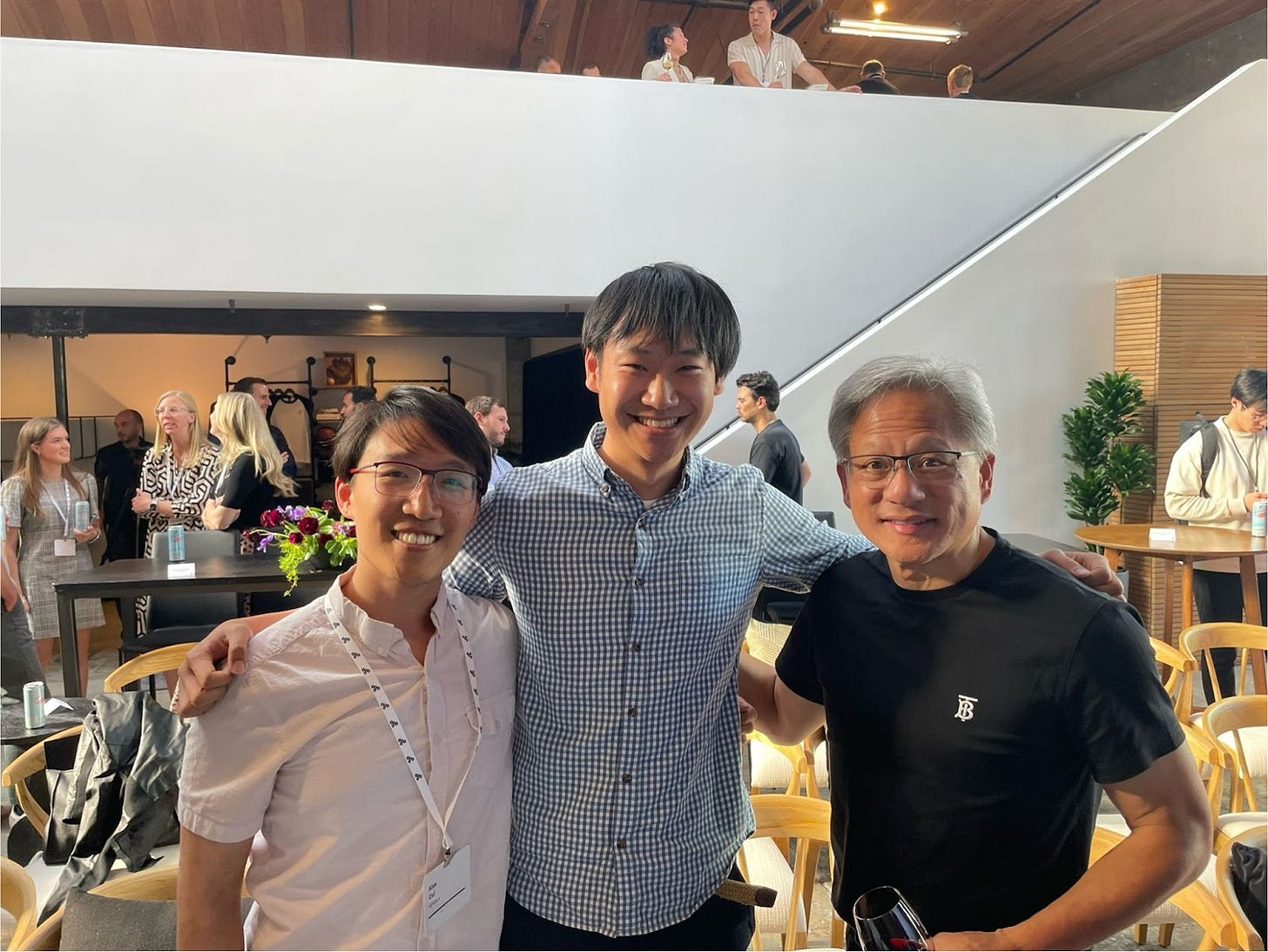GPTZero
Footwork leads the Series A in the category-creating AI detection platform.
A year ago, Edward Tian had just graduated from college. But, unlike most recent grads, he wasn't searching for a job or taking a moment to reflect on the 4-year journey. Six months prior, ChatGPT had launched, and, as usage quickly proliferated, there was a new hot topic of conversation on college campuses: how to best use AI large language models (LLMs) in learning. For written content, like essays and homework assignments, it was suddenly unclear: were these words written by a human or by AI? And Edward, who had been studying computer science, natural language processing, and journalism, immediately saw an opportunity for a much-needed new product: AI detection software.
Together with his high school friend and machine learning engineer, Alex Cui, they built and launched GPTZero, in January 2023. And it instantly resonated, with 30,000 users in its first week, crashing the app. And when Edward graduated last year, GPTZero was already more than a school project; it was a venture-funded company, having raised a $3.5 million Seed round, and off to the races.
Fast forward to this January, when I reached out to Edward to reconnect, GPTZero had grown to over a million monthly active users and millions in annual revenue with its initial premium subscription product. It was being used by educators and students, to better have a conversation around the usage of AI in schoolwork, but also by hiring managers screening candidate applications through GPTZero, by SEO marketers scanning copy from their writers through the AI detection product to ensure it meets their quality bar, and a long tail of other interesting user personas and use cases.
And as we spent time with the GPTZero team, we became more and more excited by what we learned, with the business just continuing to grow every month, and with their incredibly relevant north star: Building an independent layer to measure and preserve authentic content on the internet, for both the human and the AI. With the proliferation of AI-generated content (e.g. see this recent investigation by GPTZero into Perplexity’s use of AI-generated sources), this north star feels like it will only be a more important problem to work on in the years to come.
At Footwork, we look for companies with early signs of product-market fit, in markets that are rapidly growing, and with founders at the helm who have an incredible slope of learning and work ethic. GPTZero has all of these dimensions, and that’s why we decided to lead their Series A, a $10 million round that we’re thrilled to announce today (see more here from Julie Bort in TechCrunch). We’re very excited to work with Edward, Alex, and the GPTZero team, alongside co-investors Uncork Capital, Neo, Reach Capital, Alt Capital, and angel investors such as the former CEOs of Reuters and The New York Times.

On a personal level, it’s very special to get to partner with Edward on this company. We first met in January 2022, through TigerTrek, a trip for a small group of Princeton students to come out to Silicon Valley every year to meet with founders and builders here. We also found out that as undergrads at Princeton we lived in the same exact dorm room, 15 years apart! I’ve been incredibly impressed watching him build from afar for the last few years, and now feel privileged to get to see it up close.
Since we first started chatting with GPTZero in January, the company has tripled in users and in revenue. And by being profitable for the past several months, the company has more capital in the bank than they’ve raised to-date. It’s a very exciting time, and GPTZero is hiring across two offices, New York and Toronto, in engineering, design, and marketing. Come join us, especially if the mission to make the internet more human appeals to you.




Awesome story Nikhil - The dorm coincidence is wild!!
Best wishes. May the humans rule.